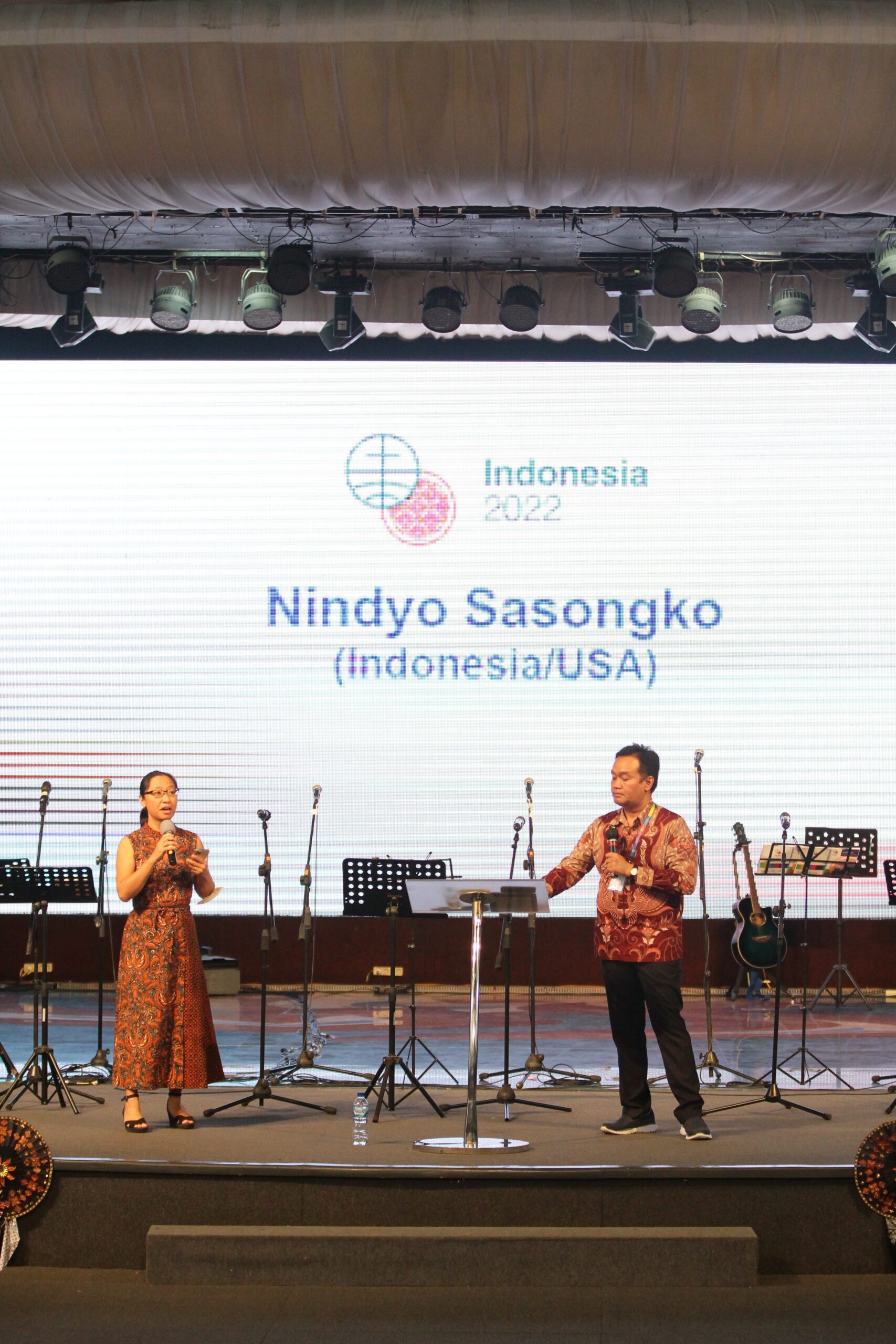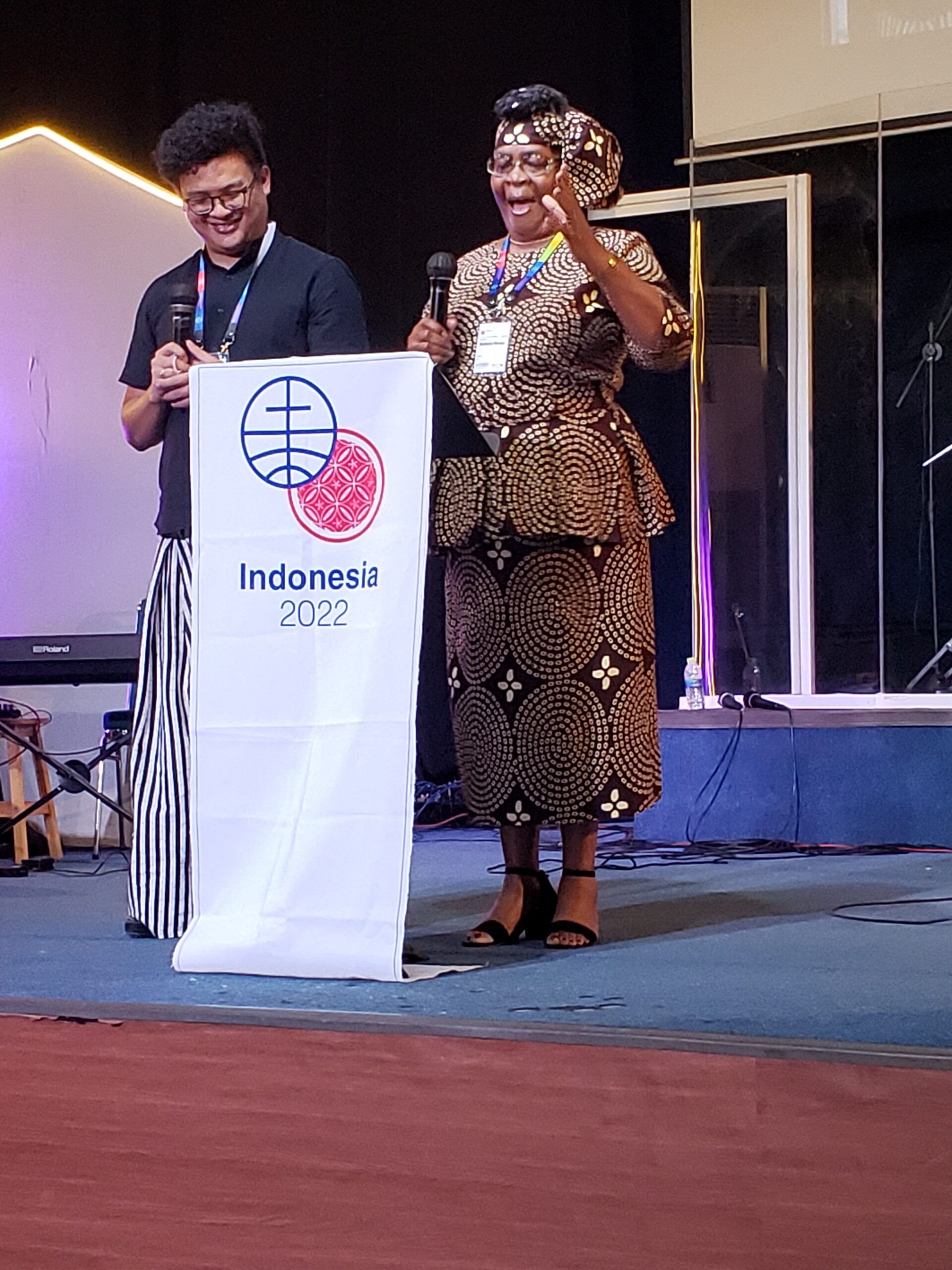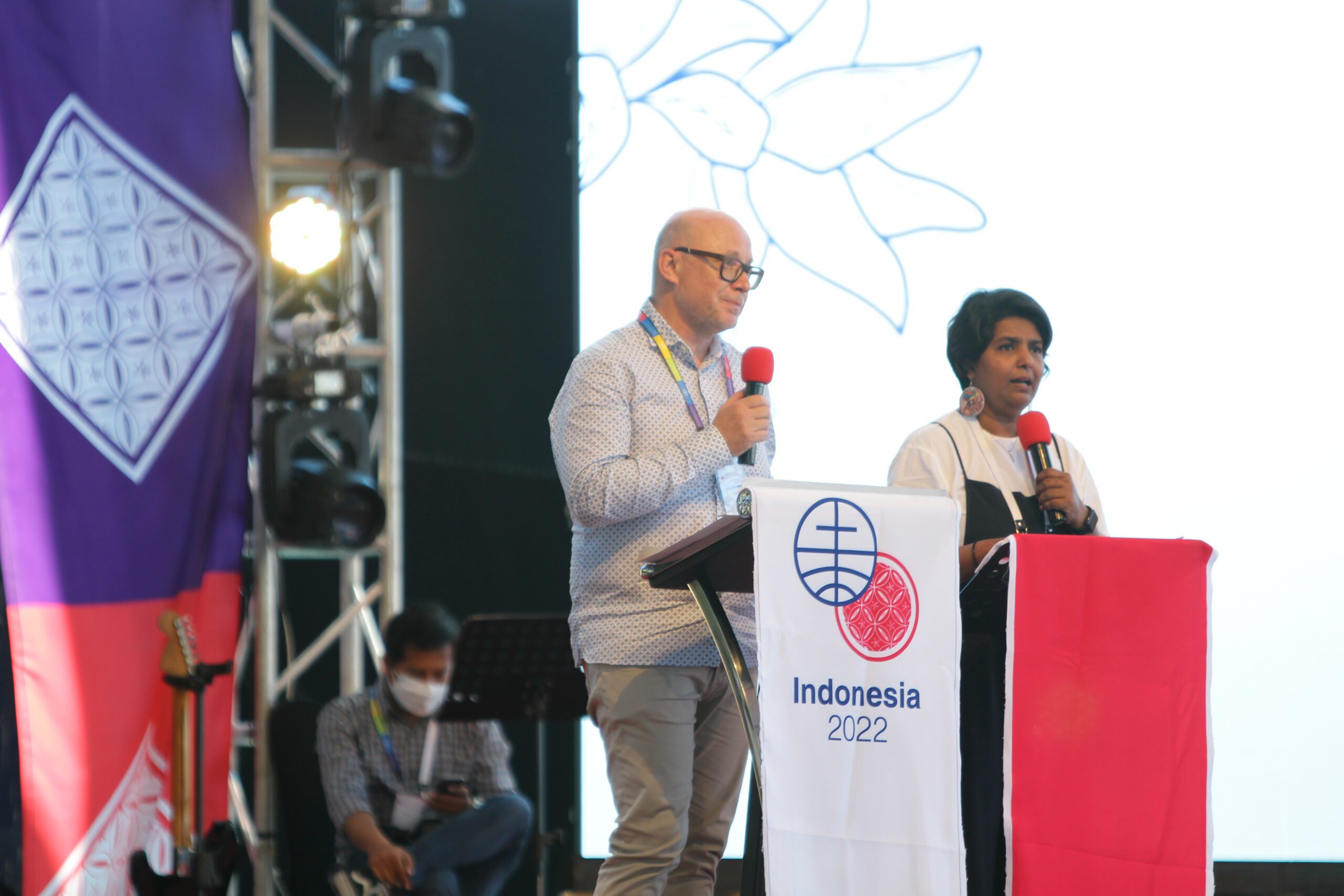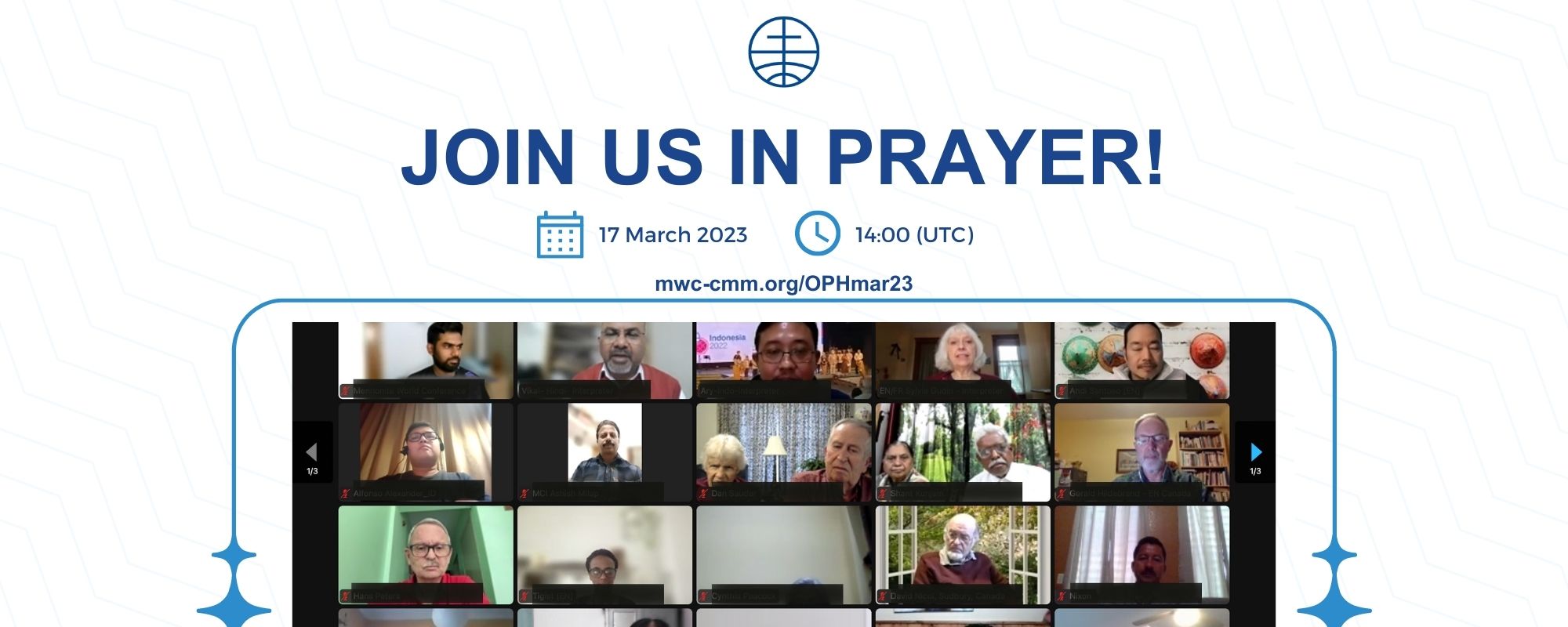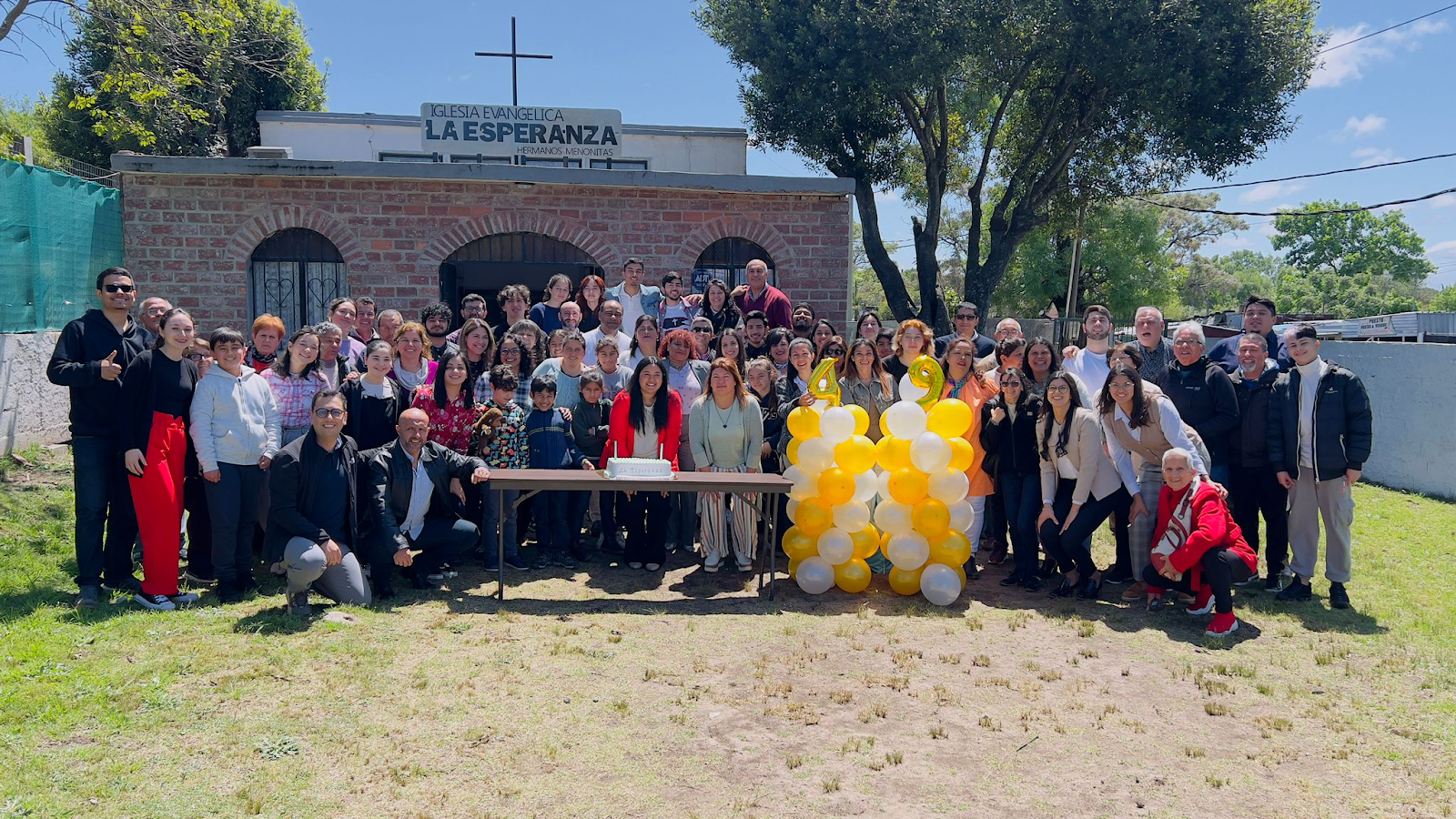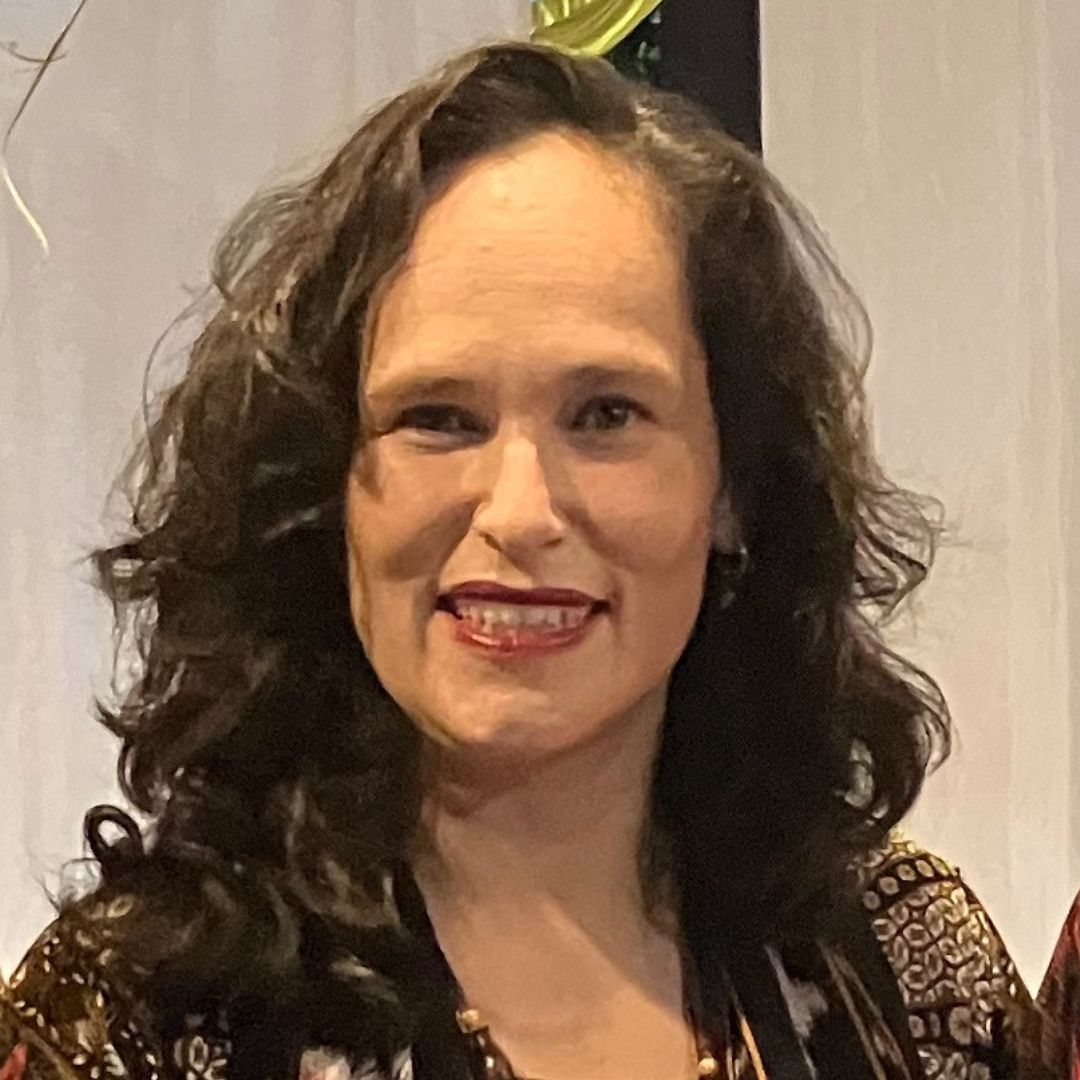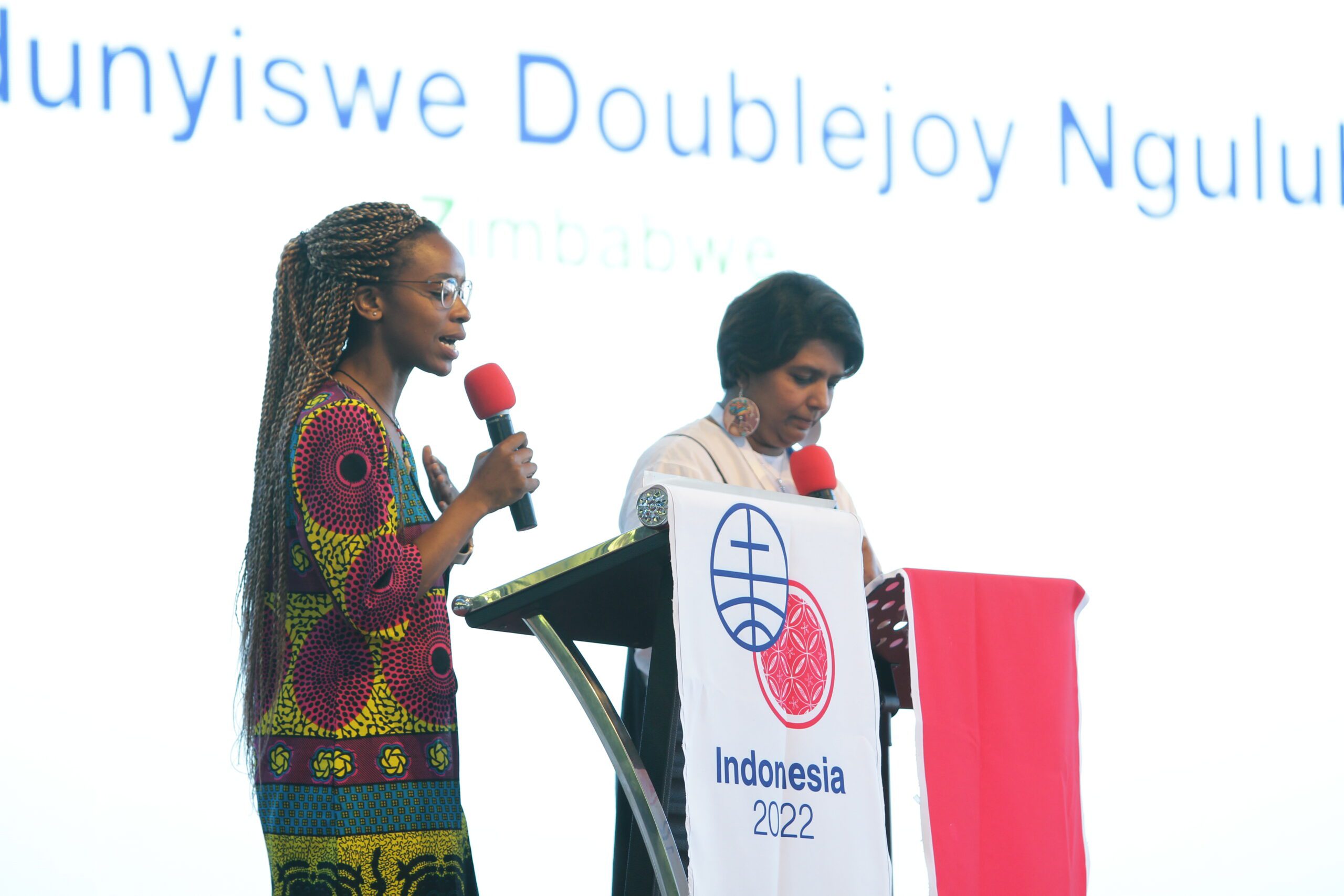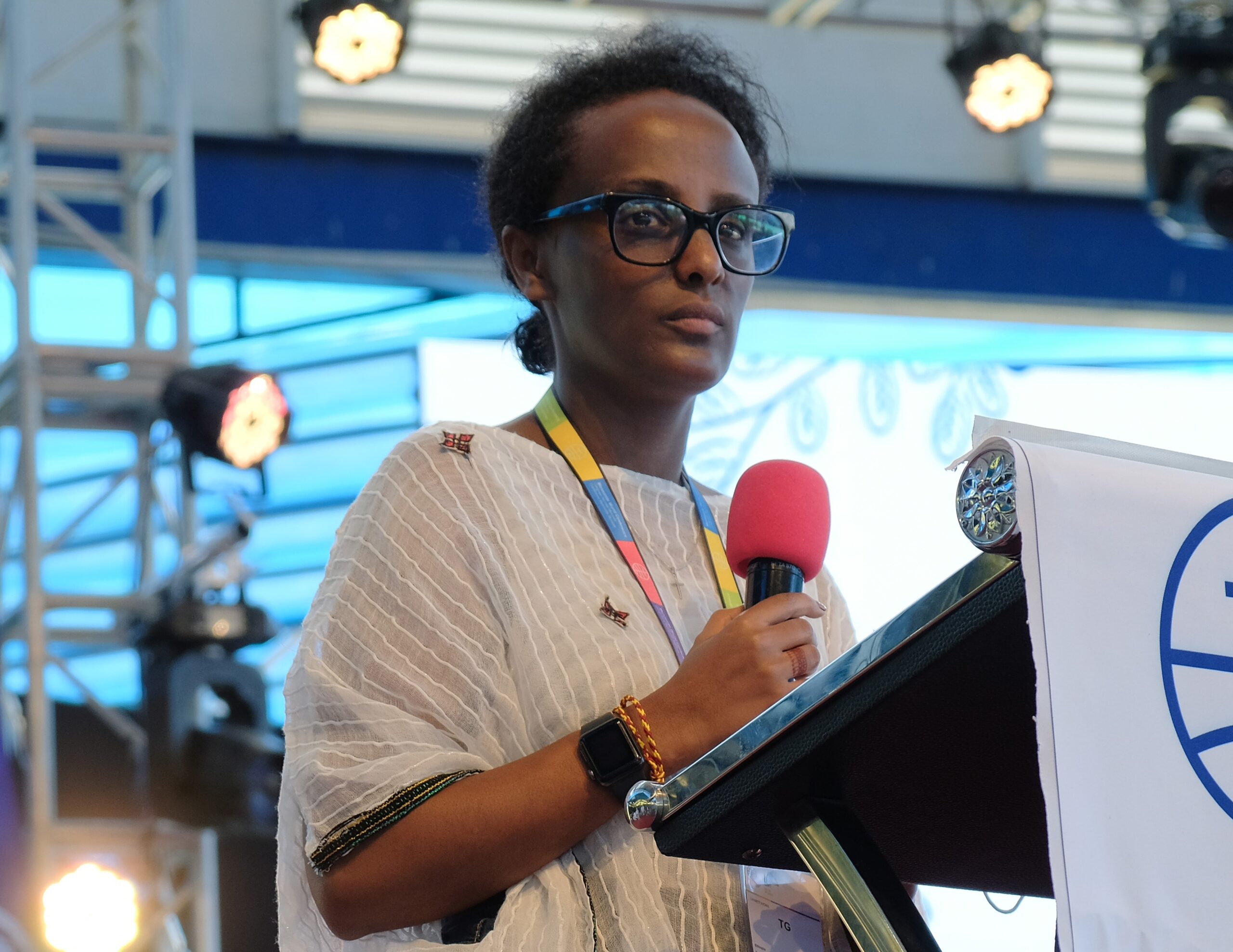-
Returning home
Ruth is the only book in the biblical canon named after a foreign woman. The book centres on Ruth, a Moabite, and her mother-in-law, Naomi, who return to the land of Judah. Calamity, displacement, barrenness, death and survival can be found in the first five verses of this book. It opens with a famine in…
-
It was as though they were celebrating with us
“We know that we are part of a larger community, but sharing this Sunday leads us to live it concretely,” says Sylvain Lavoué, church board vice president at Église Protestante Mennonite, Villeneuve le Comte, France. The church celebrated Anabaptist World Fellowship Sunday by using the testimonies and videos the worship resource provided by Mennonite World
-
God’s love, forgiveness and reconciliation
In Africa, when we talk about celebrating, we are unpacking robust and unfettered joy, loud and heartfelt singing, vibrant dancing to music and drums, ululating, whistling, stamping of feet and clapping of hands. Celebration denotes a merry heart! We celebrate when there is love, joy, peace and happiness.
-
“Very good” in troubled times
Saturday morning God saw everything that he had made, and indeed, it was very good. This is what Genesis tells us when God had created heaven and earth. God is celebrating the goodness of all creation. Is this still true? Is this “very good” still there in these troubled times? Where is it in the
-
The unlimited power of prayer
“I believe in the unlimited power of prayer,” writes the leader of a Mennonite World Conference member church in Myanmar. He was announced as a special guest for Online Prayer Hour in January 2023. However, he was unable to share about the situation of his church due to a countrywide internet outage. His name is
-
General Council learns about unity
“The unity on the conference was more important than each position,” says Paul Duck, church leader in MWC member church Convenção das Igrejas Irmãos Menonitas (COBIM) in Brazil. “We agreed to create a path or a highway, not too narrow but also not too wide where both groups could live peacefully.” During online General Council
-
Helping people see hope through Christ
New staff join MWC “Anabaptism is a global movement. But how do we create channels for relationship within a global body, and how do we allow the diversity of this body to shape understandings of “Anabaptist” identity and theology?” says Anicka Fast. A new era begins for the Faith and Life Commission in 2023 with
-
Executive Committee approves new Commission members
“We trust it is a joy to serve the global Anabaptist family, but recognize it takes effort. We are grateful for the officers, Executive Committee and Commission members who dedicate volunteer time and care to this work,” says César García, MWC general secretary. “Thank you to J. Nelson Kraybill and Rebecca Osiro who have finished
-
Ministry partner update: ICOMB – January 2023
We ended the year with gratitude to God by preparing the children, youth, and ladies camp activities to be held in January-February 2023 in Villa Maranatha.
-
Let us mutually care for one another
Friday night Come to me, all you that are weary and carrying heavy burdens, and I will give you rest. Take my yoke upon you, learn from me; for I am gentle and humble in heart, and you will find rest for your souls. For my yoke is easy and my burden is light. (Matthew
-
Intergenerational solidarity relationships
Saturday morning When we think of older generations, we think of those who came before us, the ones whose shoulders we stand on. However, when we think about the solidarity of our relationship with those generations, there seems to be a gap. Intergenerational relationships are of utmost importance. There is immense value in passing on
-
How can I celebrate?
I am tired of war, conflict, hunger, poverty, division, hatred, gun violence, black and white class difference, the oppression of women, slaughter of children and women, fake news, liars and unjust authorities and leaders and so many, many issues that you all are aware of.
